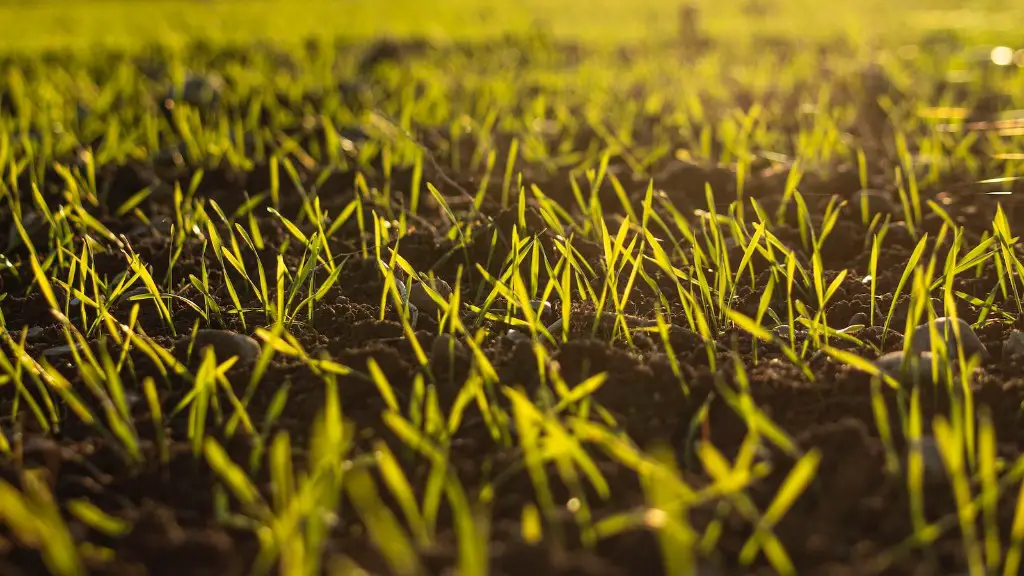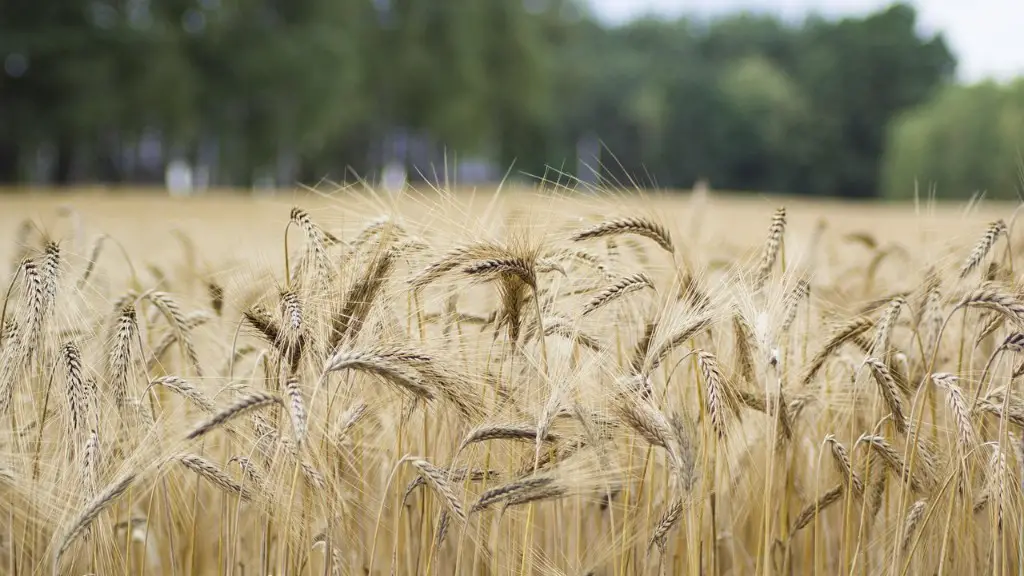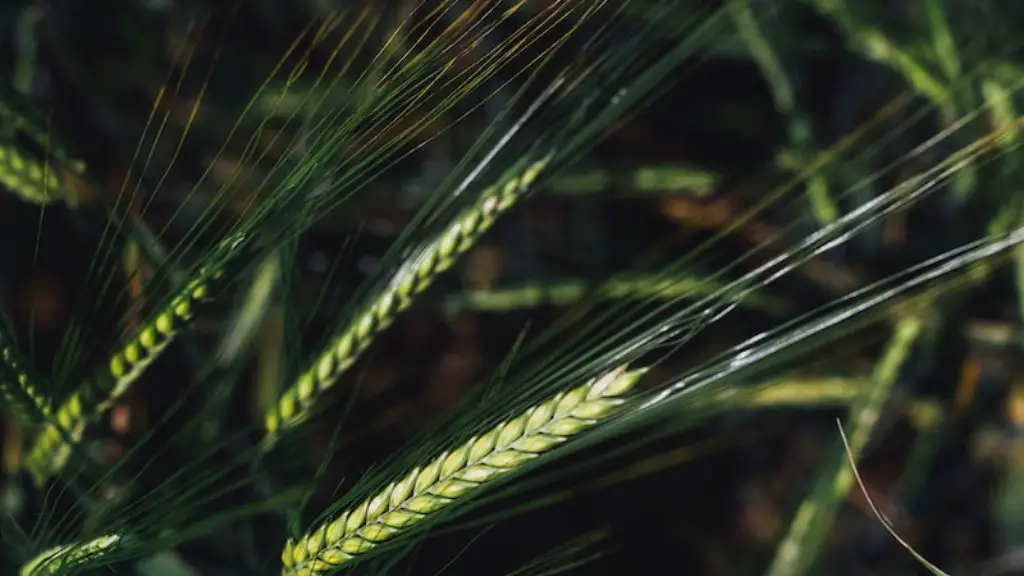Organic fertilizer is important in agriculture because it helps to improve soil quality and increase crop yields. Organic fertilizer is made from natural materials such as plants, animals, and minerals, and it helps to promote healthy plant growth. Synthetic fertilizers can also be harmful to the environment, so using organic fertilizer is a more sustainable choice.
Organic fertilizer is important in agriculture because it helps to improve and maintain soil health. It can also increase crop yields and improve the quality of the crop.
What are the benefits of using organic fertilizer?
Organic fertilizer is made from natural sources such as plants and animals. It is a more gentle option than chemical fertilizers and is less likely to overfeed your plants. Organic fertilizer is not immediately absorbed into the plants, which means it can withstand heavy rainstorms and irrigation sessions.
There is a need to improve the efficiency of nutrient use to produce more robust crops. This can be facilitated by the slow release of nutrients in response to the dynamic needs of plants. In addition, the efficiency of water use needs to be increased in order to render crops more resilient and drought-resistant. Finally, the impact of farming needs to be minimized in order to safeguard ecosystems.
What are the most important organic fertilizer
Organic fertilizers are a great way to improve soil health and release nutrients to soils gradually. They are made from natural materials and are safe for the environment. Some of the most common organic fertilizers include composted animal manure, compost, sewage sludge, food processing wastes, and municipal biosolids.
Organic farming has many benefits compared to conventional agriculture. It uses fewer pesticides, reduces soil erosion, decreases nitrate leaching into groundwater and surface water, and recycles animal wastes back into the farm. However, these benefits are counterbalanced by higher food costs for consumers and generally lower yields.
What are the advantage and disadvantages of organic fertilizer?
Organic fertilizers have a number of advantages over chemical fertilizers. Their major advantage is adding bulk to the soil. This helps improve the soil’s structure and porosity, which in turn helps the soil retain moisture and nutrients. Except for manure, the organics generally release their nutrients over a fairly long period. This means that they can be applied before planting and the plants can slowly absorb the nutrients they need over time. However, the potential drawback is that they may not release enough of their principal nutrient at a time to give a plant what it needs for best growth. The plant may need to be supplemented with additional fertilizer to get the nutrients it needs.
Organic fertilizers are naturally occurring materials that can be used to fertilize plants. Examples of organic fertilizers include manure, slurry, worm castings, peat, seaweed and guano. Green manure crops can also be grown to add nutrients to the soil.
How does organic fertilizer improve soil condition?
Organic fertilizers increase microbial activity in the soil, causing increased nutrient mineralization rates for the benefit of crops They stimulate the activities of aerobic and anaerobic bacteria [17] and arbuscular mycorrhizae fungi that form networks of root extension for extensive nutrient availability to crops. This increased microbial activity helps to improve crop yields and growth.
Organic fertilizers are materials that are derived from plant or animal sources. The main organic fertilizers are peat, animal wastes, plant wastes from agriculture, and treated sewage sludge. These materials are typically high in nutrients and can be used to improve the quality of soil.
Is organic fertilizer better for the environment
Organic farming is far more sustainable when it comes to food production. The lack of pesticides and wider variety of plants enhances biodiversity and results in better soil quality and reduced pollution from fertilizer or pesticide run-off.
Plants need a variety of nutrients to grow properly. While all nutrients are important, some are needed in greater amounts than others. The most important nutrients for plant growth are nitrogen (N), phosphorus (P), potassium (K), and sulphur (S).
What is the most important advantage of organic agriculture?
Organic farming is a type of agriculture that relies on organic materials, such as manure and compost, to fertilize crops. This type of farming yields many benefits, including the preservation of the soil’s organic composition. Organic farmers utilize practices that help to maintain and improve fertility, soil structure, and biodiversity, while reducing erosion. These practices also help to reduce the risks of human, animal, and environmental exposure to toxic materials.
Organic farming has become popular over the years because it is more environmentally friendly than traditional farming. It also promotes sustainable development, which is good for the planet. Additionally, organic food is often healthier and tastier than food that is grown with chemicals. Organic farming is also an inexpensive process, as it uses organic inputs instead of expensive synthetic fertilizers. Finally, organic farming can generate income, both through exports and through the sale of organic products.
What are 2 positives about organic farming
The many advantages of organic farming systems have been found to include yields that match conventional yields after a five-year transition, outperforming conventional farming in years of drought by up to 40%, earning 3–6 times greater profit for farmers, leaching no toxic chemicals into waterways, and using 45% less energy.
Organic fertilizer is any type of fertilizer that contains natural ingredients. It is usually carbon-based, derived from plants and plant-based substances, such as agricultural by-products or animal manures. Some of the most common examples of organic fertilizer are manure, compost, worm castings, and bone meal.
What are the three major types of organic fertilizer?
Organic fertilizers are materials of plant, animal, or mineral origin that are used to supply nutrients for plant growth. The three major types of organic fertilizers are manure, compost, and rock phosphate.
Manure is made from animal excreta, such as cow dung and goat droppings. Compost is organic matter that has been decomposed through composting. Rock phosphate is a sedimentary rock that contains a high amount of phosphate minerals.
The three most important nutrients for plants are nitrogen, phosphorus, and potassium. These are the nutrients that are most often lacking in soil, and they are the nutrients that are needed in the greatest quantities by plants. Nitrogen, phosphorus, and potassium are also the nutrients that are most often found in commercial fertilizers.
What are the four 4 benefits of soil organic matter
Organic matter is essential for healthy soil. It helps improve soil structure, increase water holding capacity, and improve nutrient availability and water infiltration rates. Additionally, organic matter supports a healthy community of soil organisms, which are important for decomposition and nutrient cycling.
Mulching is a process where a layer of material is applied to the surface of the soil. This layer can be organic, like bark or leaves, or inorganic, like gravel or plastic. Mulching has many benefits for both the plants and the soil. It helps to control weeds, maintain surface residues and roots, and enhance soil aggregation and intact large pores. This allows for better water infiltration and reduces runoff and erosion.
Warp Up
Organic fertilizer is important in agriculture because it helps to improve and maintain soil health. It can add essential nutrients to the soil and help to improve drainage and aeration. Additionally, organic fertilizer can help to suppress weeds and reduce the need for chemical pesticides and herbicides.
Organic fertilizer is essential in agriculture as it helps to improve soil health, increase crop yields, and reduce environmental pollution.





